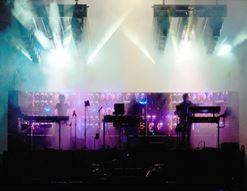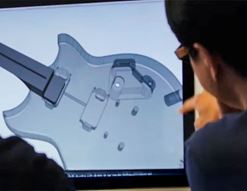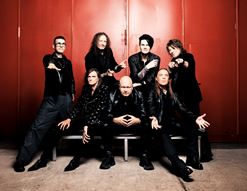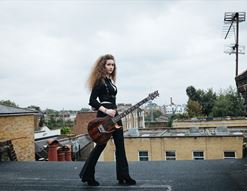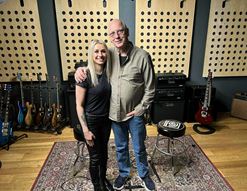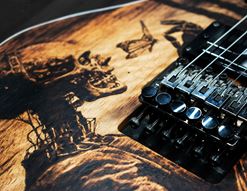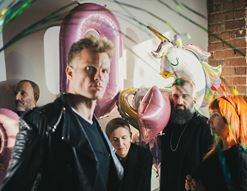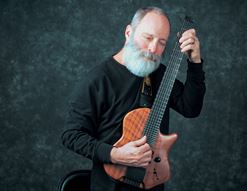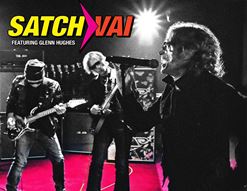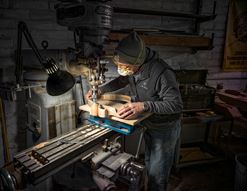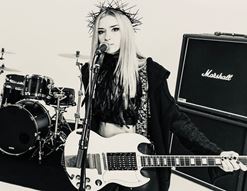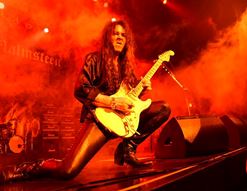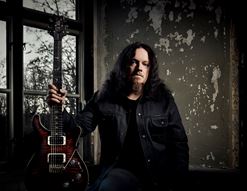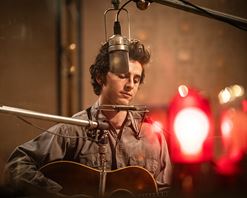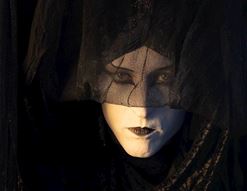There must be something in the Minneapolis water.
Some sort of 'funk' ingredient that infects the musicians and injects extra funk genes into their music.
It's where Prince is from, after all! And The Time. Vanity 6. The Family.
And Cory Wong.
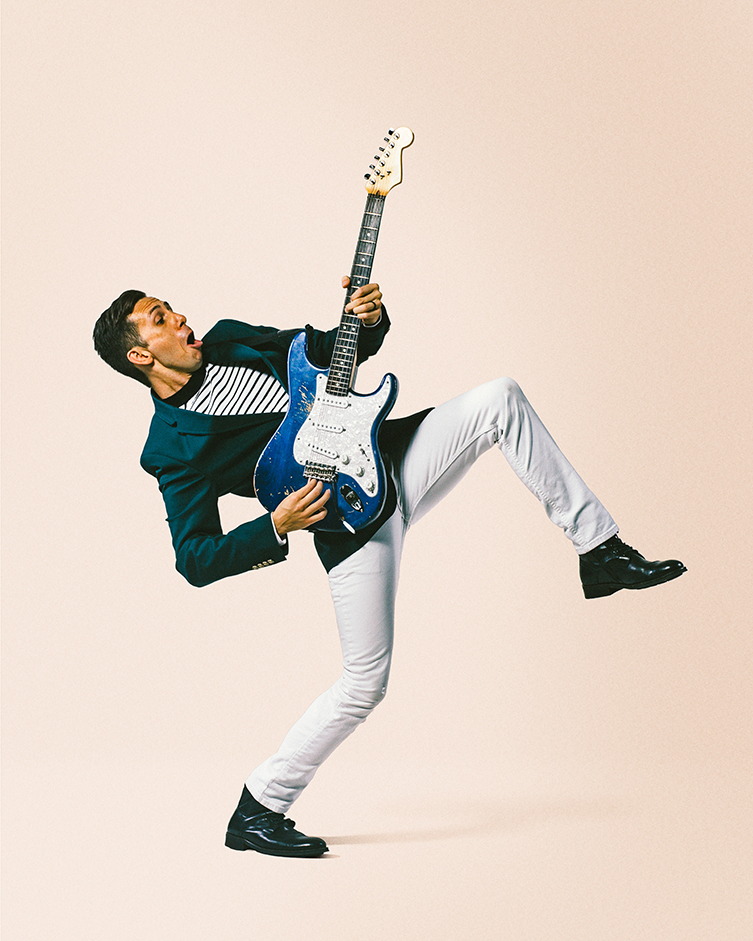
Cory is a solo artist, producer and guitarist associated with acts like Vulfpeck, Stay Human (the house band on The Late Show with Stephen Colbert), and Chris Thile of Punch Brothers, among others. His rhythmic, choppy, jazz-influenced funk rhythms are infectious and energetic, as are his performances. More than just funk, Wong's music blends in soul and jazz influences, along with a distinct jam-band feel. This type of hybrid music is both fresh and traditional. Cory's a quiet pioneer in this sense, and we were lucky to recently get a short set of email questions over to him in Minneapolis. Here's what we got back!
Cory Wong Interview
guitarguitar: Cory, is it true that you actually started out on bass first?
Cory Wong: Haha. Yes. I love the bass and that’s where I started. My favorite bands at the time were Red Hot Chili Peppers and Primus… so naturally I wanted to play the bass. My friend who I wanted to start a band with had a bass at his house, and wasn’t willing to go buy a guitar…so I said, “screw it! I’ll get a guitar and learn that” and the rest is history.
GG: You’re a great funk player, and you grew up in Minneapolis: does this mean you’re a big Prince fan?
CW: Of course. Being in Minneapolis, Prince’s legacy is everywhere. Honestly I didn’t realize the global impact he had until a few years ago. The reality is…you can’t be a funk player in Minneapolis and NOT play with someone who was tied to him in some way. The scene I grew up in, and the mentors I grew up under all were in his band at various points.
"Being a great rhythm and ‘parts’ player is the secret to getting hired a lot as a guitarist."
GG: You are a very accomplished rhythm player. Would you say that it’s an underappreciated art, compared to lead guitar?
CW: YES. A lot of guitar players don’t realize that the majority of playing that we do is rhythm! Being a great rhythm and ‘parts’ player is the secret to getting hired a lot as a guitarist.
GG: Developing that idea, you seen to favour ensemble playing over blatant displays of virtuosity. What, in your opinion, makes for a good ensemble player?
CW: LISTENING. You’ve got to listen to the other members of the rhythm section. Not only do you need to listen to their specific parts, notes, and rhythms; but it’s also important to understand the ROLE that each person is playing. Once that becomes second nature, you can start digging into the nuances of the subdivision and inner dynamics. That’s where it gets really fun.
GG: Do you see your two most recent records, Trail Songs: Dusk and Dawn, as being a departure from what you’re normally known for? What is the overall idea behind these two linked albums?
CW: For the most part, this is a huge departure from what I normally do. I would typically put out one album per year and have it loosely what my fanbase is expecting with some sort of exciting or new concept applied to it. The Trail Songs albums are very different because they come from a different place. In the year 2020 we’ve really been forced to look at our output and creativity in a different way (for better or worse). I took this as an opportunity to showcase a different side of myself as an artist and guitar player, but more importantly to express myself in a new way. These albums are all acoustic instruments and I’m not playing any electric guitar. The Dawn album is more like my other albums, but on acoustic guitar. The Dusk album is a much more reflective and contemplative album.
"Find what’s most magnetic about your personality and your playing style, and put a magnifying glass on it."
GG: Your playing often has nice, tasteful Jazz flourishes. Are there easy ways for our readers to incorporate a little of that into their playing?
CW: Well again it starts with listening! If that music is not in your ears or in your heart, there’s no way that it’s going to come out in an authentic way. I studied jazz guitar pretty intensely in college. So the first thing would be to find a few jazz standards you really connect with. Learn the basic chord structures and how the melody relates to them. Then try to add some chord extensions on top of the chords and see where your ears take you. THEN, go find EVERY version of those songs you can possibly find and see what other great artists have done with those songs and analyse them. Figure out how you can take some of those ideas and put them into songs that you currently play. BUT ONLY DO IT WHEN IT’S APPROPRIATE. Don’t force something if it’s unnatural.
GG: I read that you often DI your guitar when recording. Do you experiment much with plugins and digital modelling at all?
CW: I love recording direct. It’s my absolute favourite way to record. I have recorded with the greatest and most revered amps in the world, and I’ve recorded direct into a cheap interface. The thing I want the most is consistency and efficiency. It’s amazing how far modelling and plugins have come in the last 5 years. Of course I may be biased, but the best clean tones I’ve ever gotten are from the Neural DSP Archetype : Cory Wong plugin. I worked with their programmers for months to dial in the perfect clean tones all the way to edge-of-breakup tones. It’s really incredible.
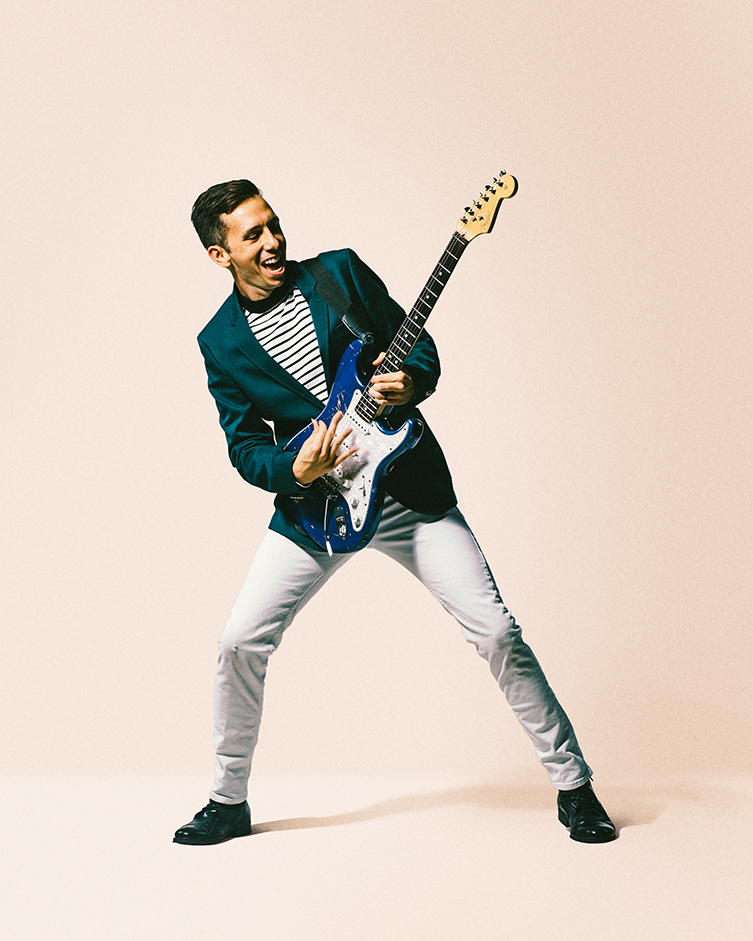
GG: You are a successful independent musician who plays on a lot of diverse projects. What advice do you have for musicians looking to follow a similar path?
CW: Find out what makes you unique. Find what’s most magnetic about your personality and your playing style, and put a magnifying glass on it.
GG: Finally, what are your plans for the rest of the year?
CW: I’ve been doing a TON of writing and recording. I’ve just finished my absolute best album yet. I can say that with 100% confidence. I am so excited. So I’ll be releasing that soon!
We are excited, too! If you need a little funk in your life, head on over to the Cory Wong website, where you'll find links to his music and news about his upcoming projects. We'd like to thank Cory for his time, and to Dan Rucinski and Ben Baruch for their help in setting us up with him.
Thanks for reading, we'll see you soon!

